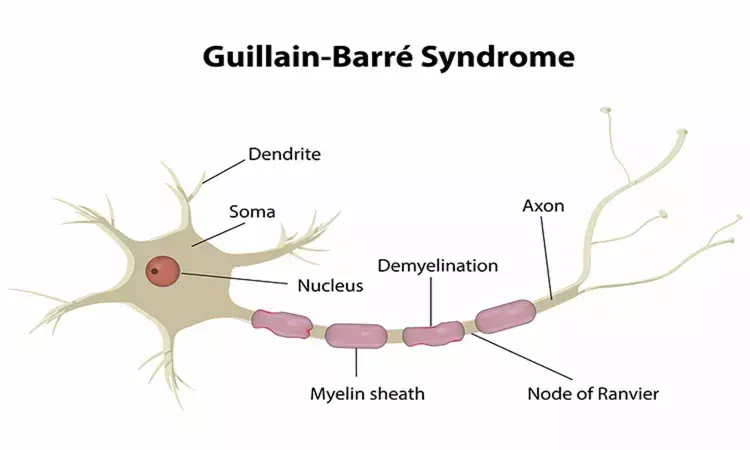- Home
- Medical news & Guidelines
- Anesthesiology
- Cardiology and CTVS
- Critical Care
- Dentistry
- Dermatology
- Diabetes and Endocrinology
- ENT
- Gastroenterology
- Medicine
- Nephrology
- Neurology
- Obstretics-Gynaecology
- Oncology
- Ophthalmology
- Orthopaedics
- Pediatrics-Neonatology
- Psychiatry
- Pulmonology
- Radiology
- Surgery
- Urology
- Laboratory Medicine
- Diet
- Nursing
- Paramedical
- Physiotherapy
- Health news
- Fact Check
- Bone Health Fact Check
- Brain Health Fact Check
- Cancer Related Fact Check
- Child Care Fact Check
- Dental and oral health fact check
- Diabetes and metabolic health fact check
- Diet and Nutrition Fact Check
- Eye and ENT Care Fact Check
- Fitness fact check
- Gut health fact check
- Heart health fact check
- Kidney health fact check
- Medical education fact check
- Men's health fact check
- Respiratory fact check
- Skin and hair care fact check
- Vaccine and Immunization fact check
- Women's health fact check
- AYUSH
- State News
- Andaman and Nicobar Islands
- Andhra Pradesh
- Arunachal Pradesh
- Assam
- Bihar
- Chandigarh
- Chattisgarh
- Dadra and Nagar Haveli
- Daman and Diu
- Delhi
- Goa
- Gujarat
- Haryana
- Himachal Pradesh
- Jammu & Kashmir
- Jharkhand
- Karnataka
- Kerala
- Ladakh
- Lakshadweep
- Madhya Pradesh
- Maharashtra
- Manipur
- Meghalaya
- Mizoram
- Nagaland
- Odisha
- Puducherry
- Punjab
- Rajasthan
- Sikkim
- Tamil Nadu
- Telangana
- Tripura
- Uttar Pradesh
- Uttrakhand
- West Bengal
- Medical Education
- Industry
First ever COVID-19 case presenting as Guillain-Barré syndrome- A report

Doctors in China have reported what they believe is the first case of COVID-19 initially presenting as acute Guillain-Barré syndrome (GBS).The case has been published online in Lancet Neurology.
Guillain-Barré syndrome (GBS) is a rare neurological disorder in which the body's immune system mistakenly attacks part of its own peripheral nervous system. GBS can range from a very mild case with brief weakness to nearly devastating paralysis, leaving the person unable to breathe independently.
In the instant case the patient was a 61-year-old woman returning home from Wuhan during the pandemic.
She presented to the hospital with acute weakness in both legs and severe fatigue that progressed.
At presentation her body temperature was 36·5°C, oxygen saturation was 99% on room air, and respiratory rate was 16 breaths per min. Lung auscultation showed no abnormalities. Neurological examination disclosed symmetric weakness (Medical Research Council grade 4/5) and areflexia in both legs and feet. 3 days after admission, her symptoms progressed. Muscle strength was grade 4/5 in both arms and hands and 3/5 in both legs and feet. Sensation to light touch and pinprick was decreased distally.She was not tested for SARS-CoV-2 at that point of time.
Her laboratory test results indicated a low lymphocyte count and thrombocytopenia. Her results of nerve conduction studies performed on day 5 of hospitalization were consistent with demyelinating neuropathy.
The patient was diagnosed with GBS and given intravenous immunoglobulin. On day 8, she developed a dry cough and fever, and a chest CT showed ground-glass opacities in both lungs. At this point, she was tested for SARS-CoV-2, and the results were positive.
She was immediately transferred to an isolation room and received supportive care and antiviral drugs. Her condition improved gradually, and her lymphocyte and thrombocyte counts were normal on day 20.
She was discharged after one month.At discharge she had normal muscle strength in both arms and legs, and tendon reflexes in both legs and feet were also normal. Her respiratory symptoms had resolved and her second SARS-CoV-2 test was negative.
This single case report suggests a possible association between Guillain-Barré syndrome and SARS-CoV-2 infection, and more cases with epidemiological data are necessary to support a causal relationship.
This case also suggests the need to consider potential neurological symptoms of SARS-CoV-2 infection. Furthermore, this report should alert clinicians to the risk of inadvertent SARS-CoV-2 infection, even if they work outside of the emergency or infectious disease department.
For further reference log on to:
Dr Kamal Kant Kohli-MBBS, DTCD- a chest specialist with more than 30 years of practice and a flair for writing clinical articles, Dr Kamal Kant Kohli joined Medical Dialogues as a Chief Editor of Medical News. Besides writing articles, as an editor, he proofreads and verifies all the medical content published on Medical Dialogues including those coming from journals, studies,medical conferences,guidelines etc. Email: drkohli@medicaldialogues.in. Contact no. 011-43720751


